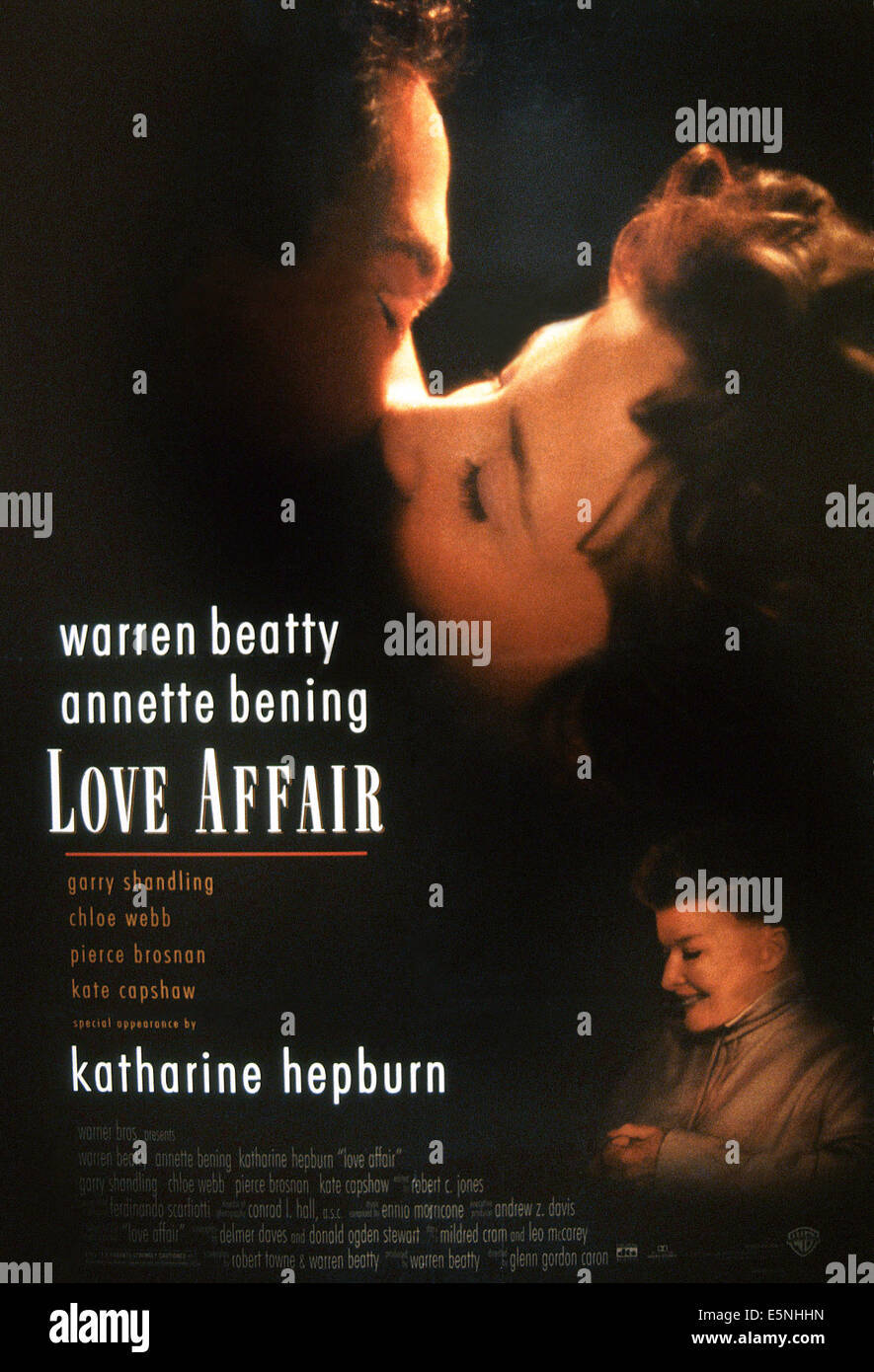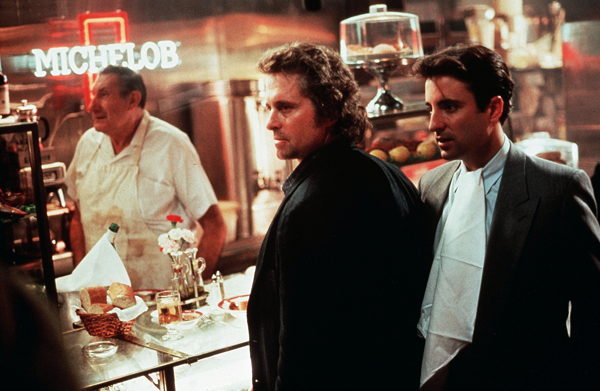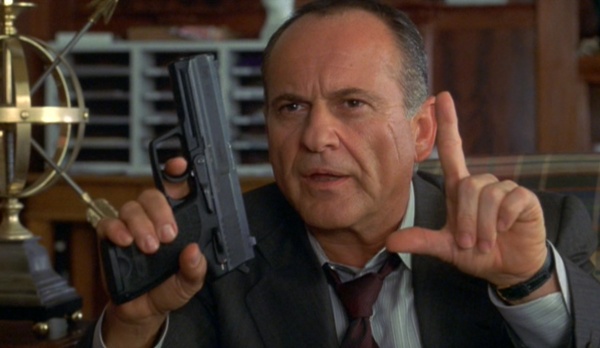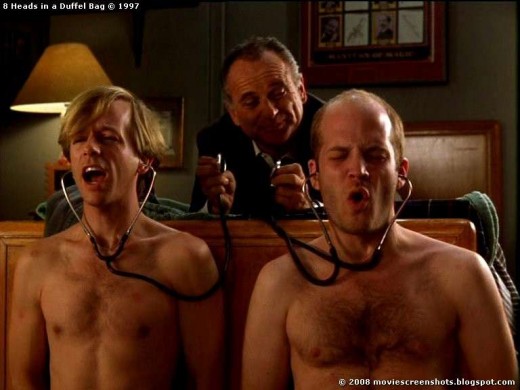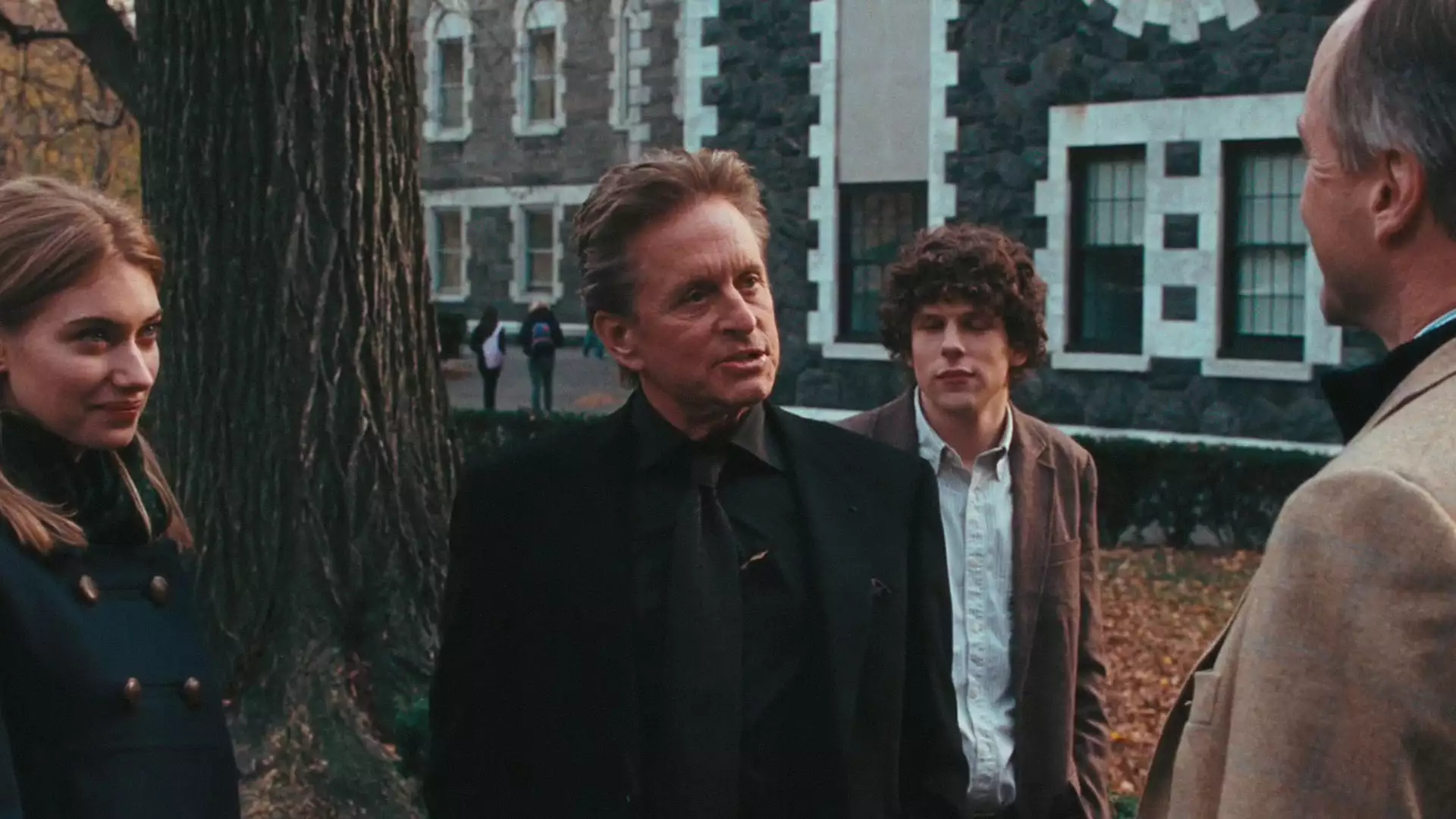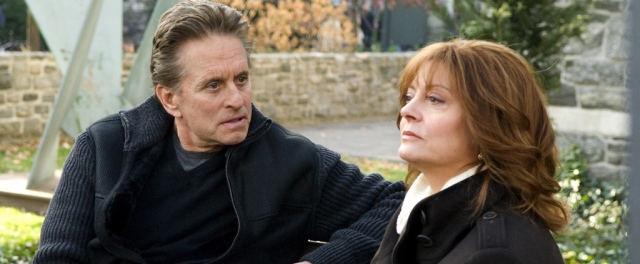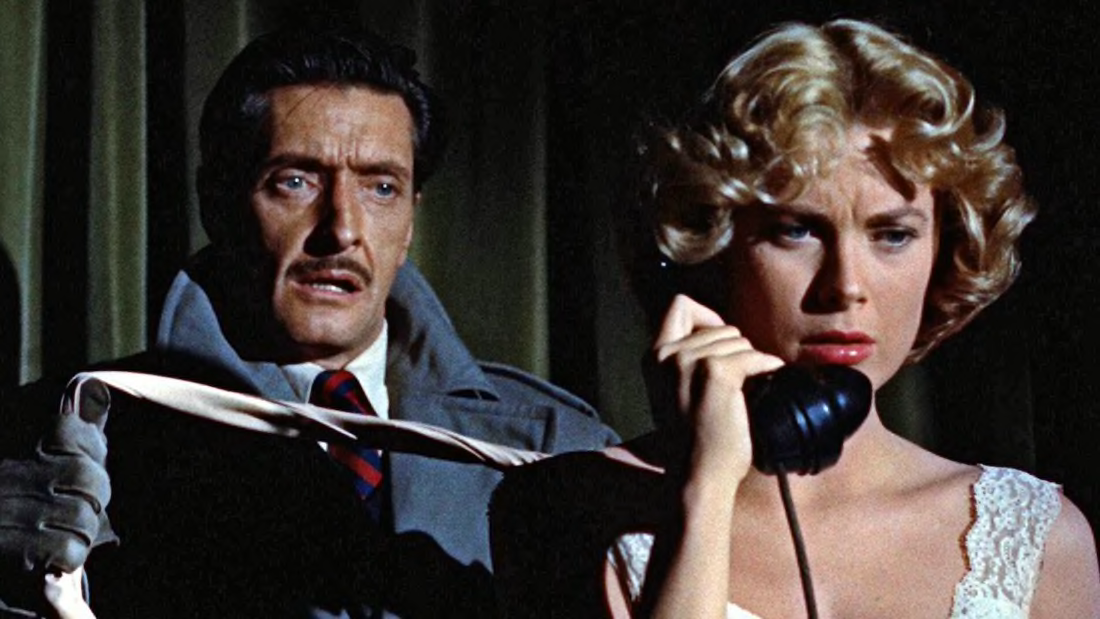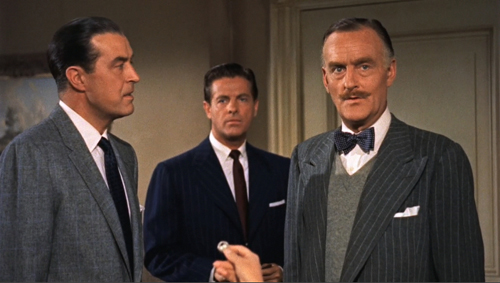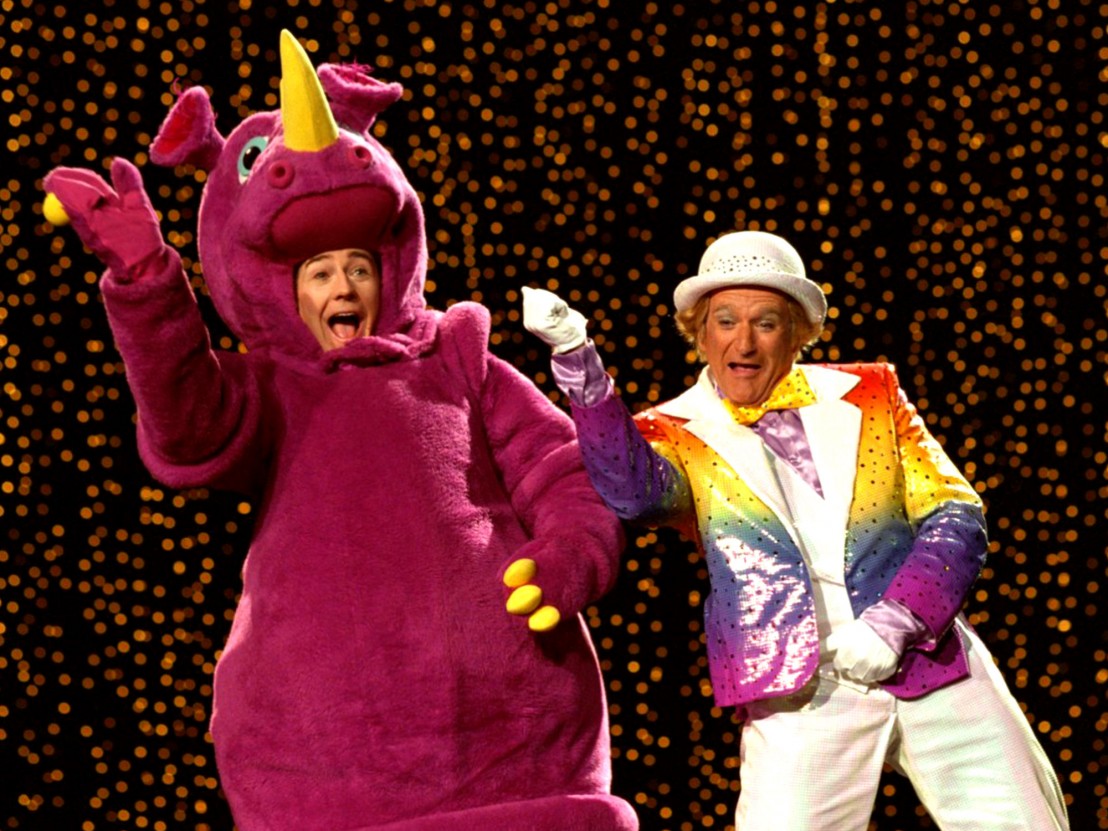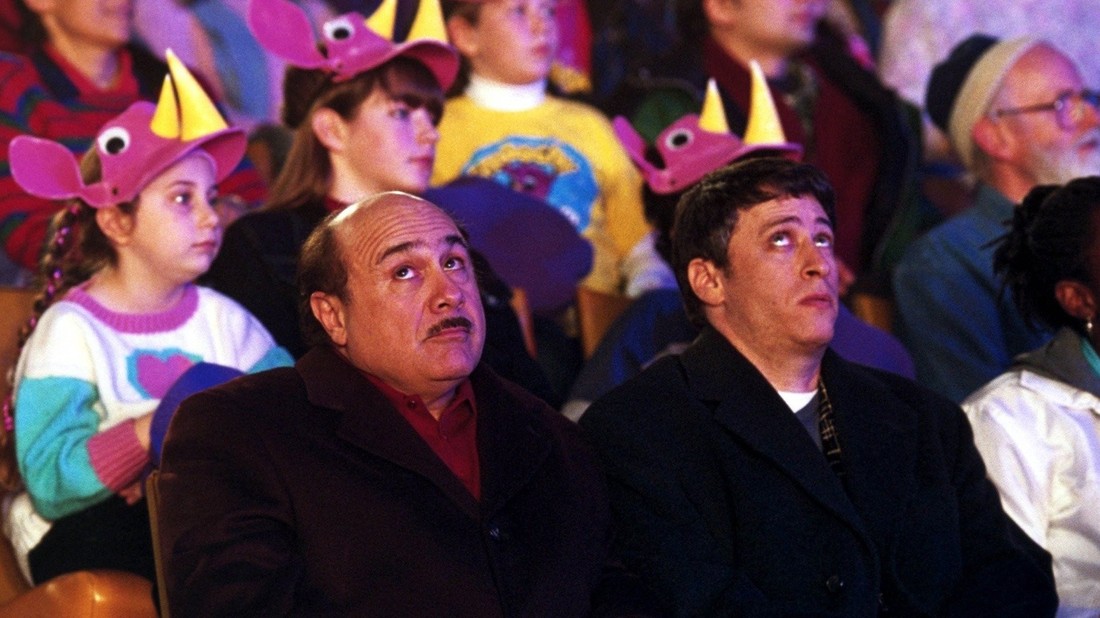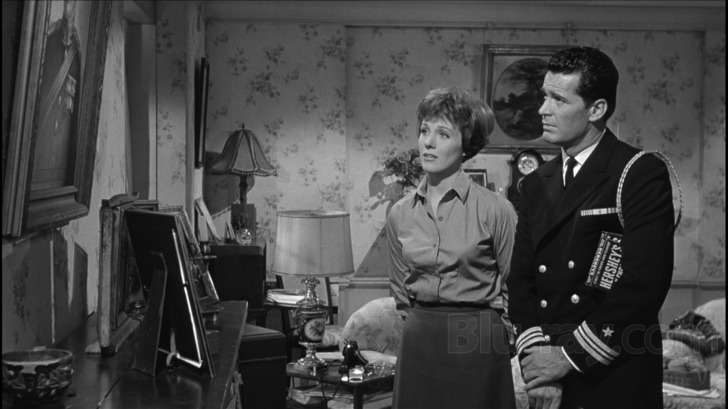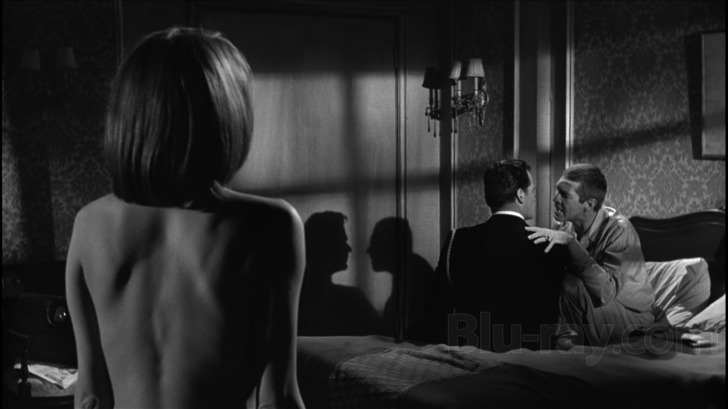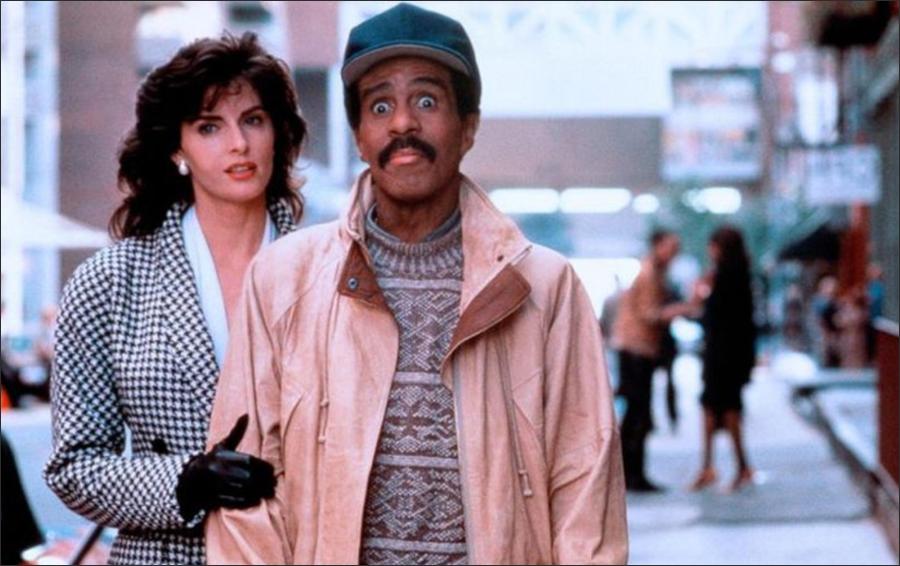Ironweed
Ironweed is an intense and atmospheric look at alcoholism, homelessness, and loneliness that goes on a lot longer than it needs to, but is worth a look thanks to the extraordinary, Oscar-nominated performances by Jack Nicholson and Meryl Streep.
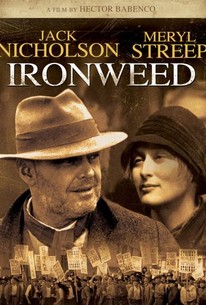
It's Halloween Night in 1938 Albany, New York where we meet Francis (Nicholson) who has returned to his hometown for the first time in years, reuniting with his best friend Rudy (Tom Waits) and his best girl Helen (Meryl Streep). As we watch the reunion of these homeless comrades, we do learn that Rudy is dying from cancer, that Helen was once a professional singer and that Francis was once a major league baseball player. The story is an up close look at how these three people choose and don't choose to deal with the demons that have haunted them by attempting to drown them in alcohol.

William Kennedy has crafted a period appropriate screenplay, based on his own novel, that takes an up-close look at the plight of the homeless and alcoholic that has a different look than we're accustomed to because it's set in the 1930's, when the homeless were referred to as "bums" and people were even more uncomfortable with them then than they are today. Like most homeless, we're never privy to what got them to that state, but we get a little insight into it here...Francis apparently was responsible for the death of his infant son, separating him from his family and forcing him deep into the bottle. The detail that goes into Francis' story probably had a lot to do with this film's severe over-length.

Hector Babenco has provided very detail-oriented direction to this somewhat depressing tale, perhaps a little over-detailed as this film is really much longer than it needs to be, but aided by his production team. Babenco creates an atmosphere of deep pathos that pervades every scene. He drives home the desperation of people not knowing where their next meal was coming from or where they were going to sleep that night, but, for some reason, always seem to have a pint stuffed in their pocket. This might be one of the underlying reasons why people today are still a little reluctant to help the homeless because they really don't seem interested in helping themselves.

These people may not work too hard at helping themselves, but they once had goals and ambitions, sometimes manifested in fantasy here. I love the scene where Francis, Helen, and Rudy are in a bar and Helen is asked to sing a song for the patrons. Babenco and Kennedy give Helen a moment of triumph that is cheer-inducing and then jerk it right away from her, taking us right back to the often dank reality of this story, which includes an attack on the homeless near the film's climax that is comparable to the KKK attacking blacks in the deep south that is quite unsettling.
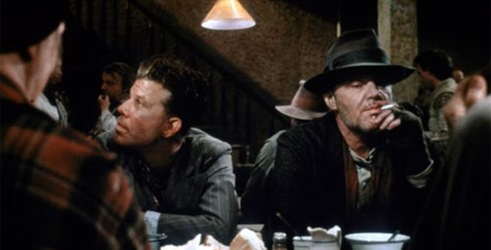
Nicholson's powerful and heartbreaking turn as Francis won him a sixth Lead Actor Oscar nomination and a fifth Lead Actress nomination for Streep, the only nominations the film received. They get solid support from Waits, Carroll Baker, Michael O'Keefe, and the intense Diane Venora, an actress who has been known to give me chills. Art direction, cinematography, and music deserve bouquets as well, but it is Nicholson and Streep that make this long and labored journey worth a shot.
Ironweed is an intense and atmospheric look at alcoholism, homelessness, and loneliness that goes on a lot longer than it needs to, but is worth a look thanks to the extraordinary, Oscar-nominated performances by Jack Nicholson and Meryl Streep.
It's Halloween Night in 1938 Albany, New York where we meet Francis (Nicholson) who has returned to his hometown for the first time in years, reuniting with his best friend Rudy (Tom Waits) and his best girl Helen (Meryl Streep). As we watch the reunion of these homeless comrades, we do learn that Rudy is dying from cancer, that Helen was once a professional singer and that Francis was once a major league baseball player. The story is an up close look at how these three people choose and don't choose to deal with the demons that have haunted them by attempting to drown them in alcohol.

William Kennedy has crafted a period appropriate screenplay, based on his own novel, that takes an up-close look at the plight of the homeless and alcoholic that has a different look than we're accustomed to because it's set in the 1930's, when the homeless were referred to as "bums" and people were even more uncomfortable with them then than they are today. Like most homeless, we're never privy to what got them to that state, but we get a little insight into it here...Francis apparently was responsible for the death of his infant son, separating him from his family and forcing him deep into the bottle. The detail that goes into Francis' story probably had a lot to do with this film's severe over-length.
Hector Babenco has provided very detail-oriented direction to this somewhat depressing tale, perhaps a little over-detailed as this film is really much longer than it needs to be, but aided by his production team. Babenco creates an atmosphere of deep pathos that pervades every scene. He drives home the desperation of people not knowing where their next meal was coming from or where they were going to sleep that night, but, for some reason, always seem to have a pint stuffed in their pocket. This might be one of the underlying reasons why people today are still a little reluctant to help the homeless because they really don't seem interested in helping themselves.
These people may not work too hard at helping themselves, but they once had goals and ambitions, sometimes manifested in fantasy here. I love the scene where Francis, Helen, and Rudy are in a bar and Helen is asked to sing a song for the patrons. Babenco and Kennedy give Helen a moment of triumph that is cheer-inducing and then jerk it right away from her, taking us right back to the often dank reality of this story, which includes an attack on the homeless near the film's climax that is comparable to the KKK attacking blacks in the deep south that is quite unsettling.

Nicholson's powerful and heartbreaking turn as Francis won him a sixth Lead Actor Oscar nomination and a fifth Lead Actress nomination for Streep, the only nominations the film received. They get solid support from Waits, Carroll Baker, Michael O'Keefe, and the intense Diane Venora, an actress who has been known to give me chills. Art direction, cinematography, and music deserve bouquets as well, but it is Nicholson and Streep that make this long and labored journey worth a shot.
Last edited by Gideon58; 08-22-24 at 01:08 PM.

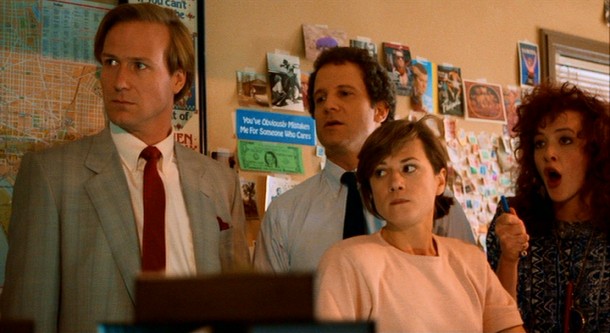

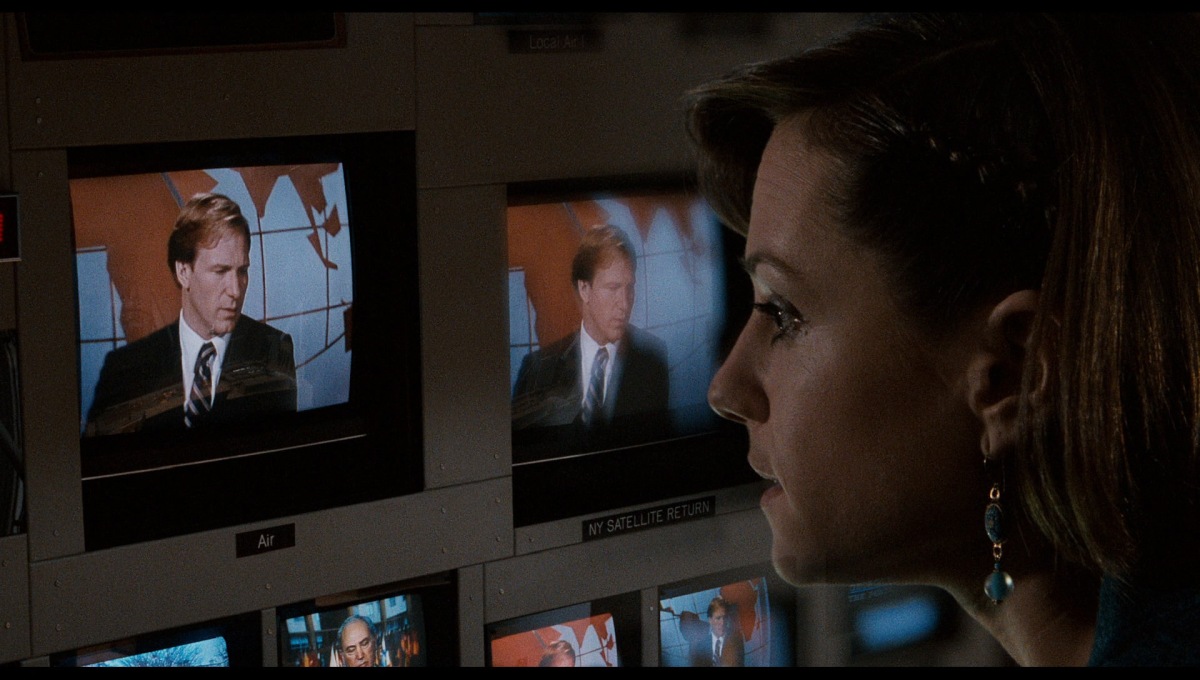
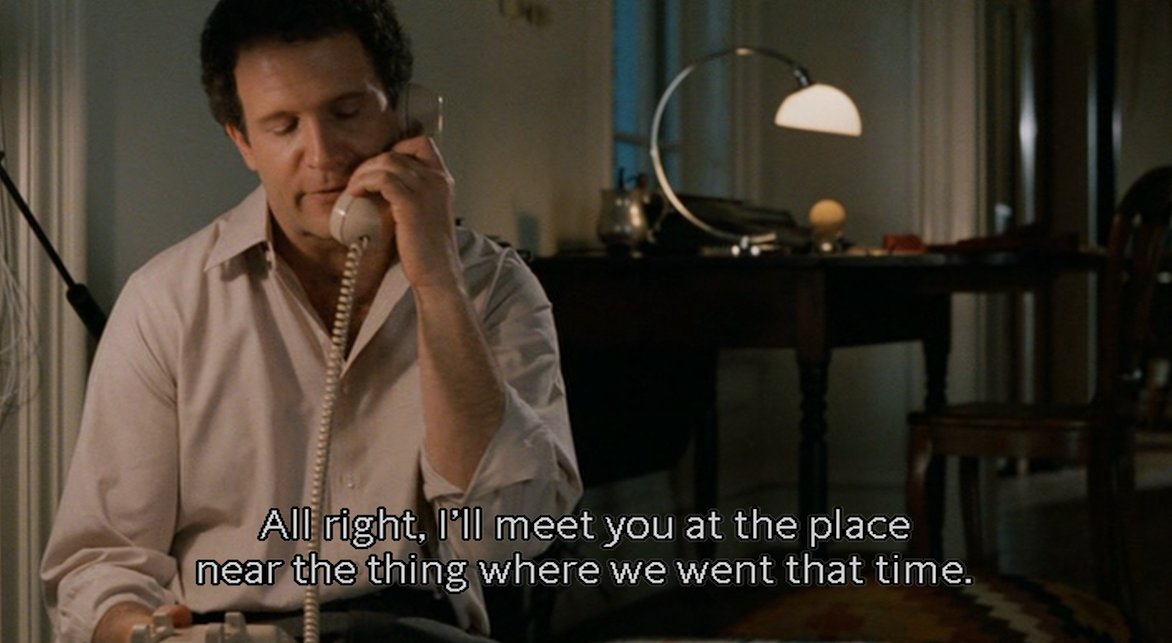






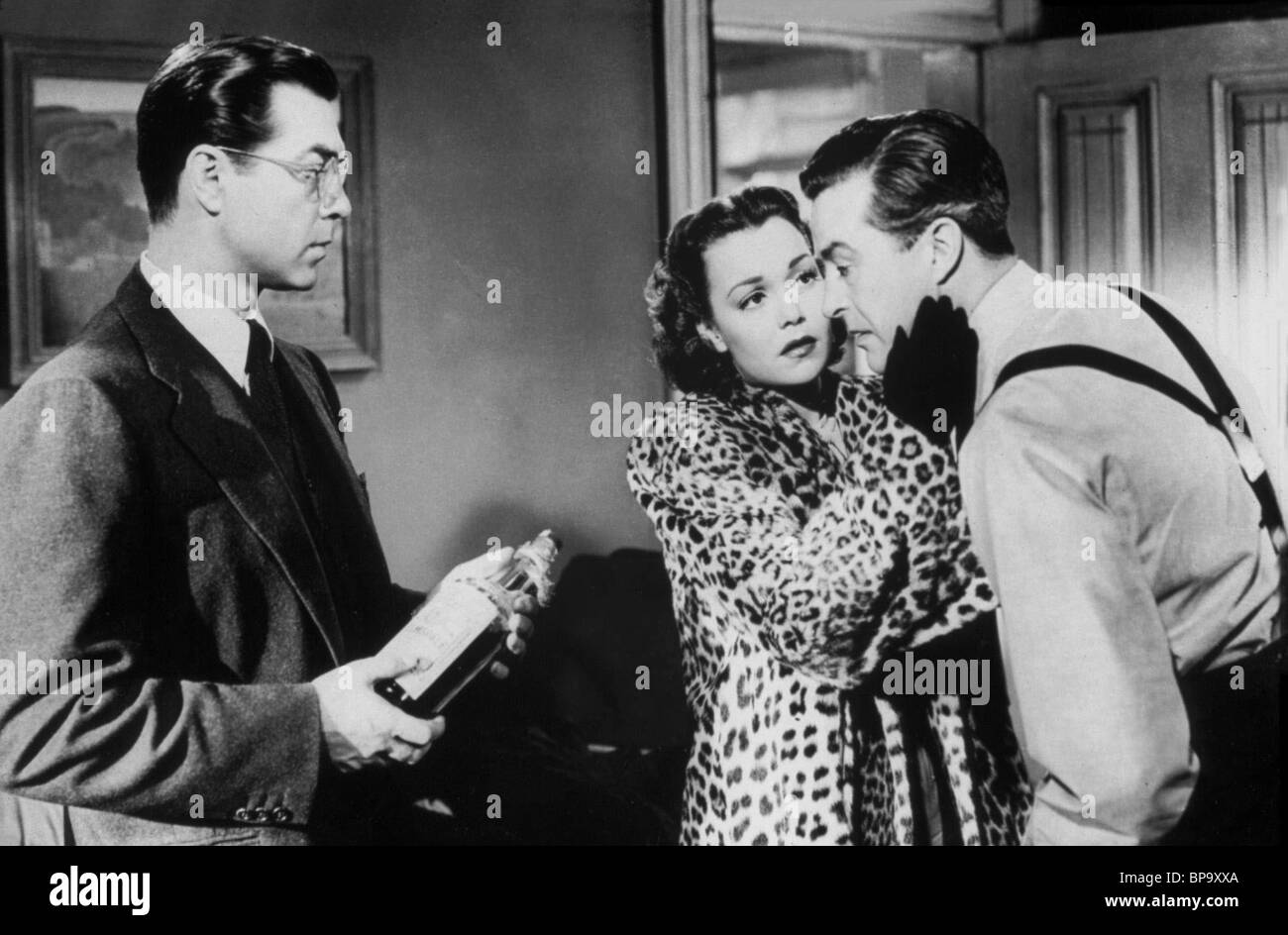
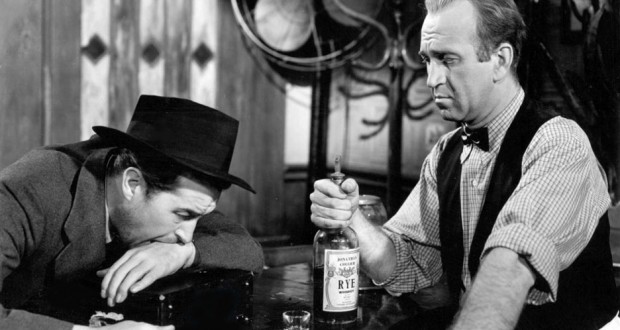
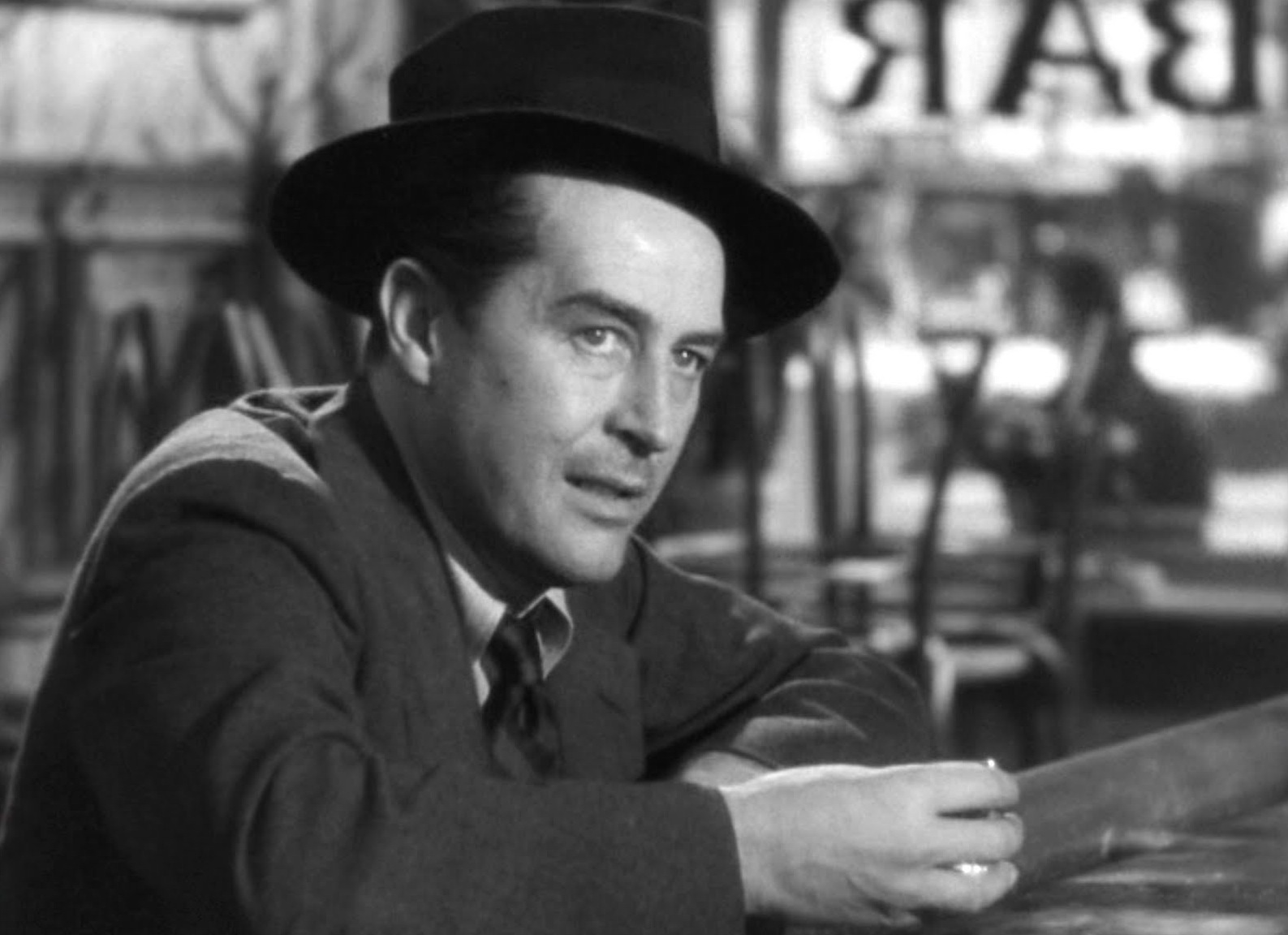




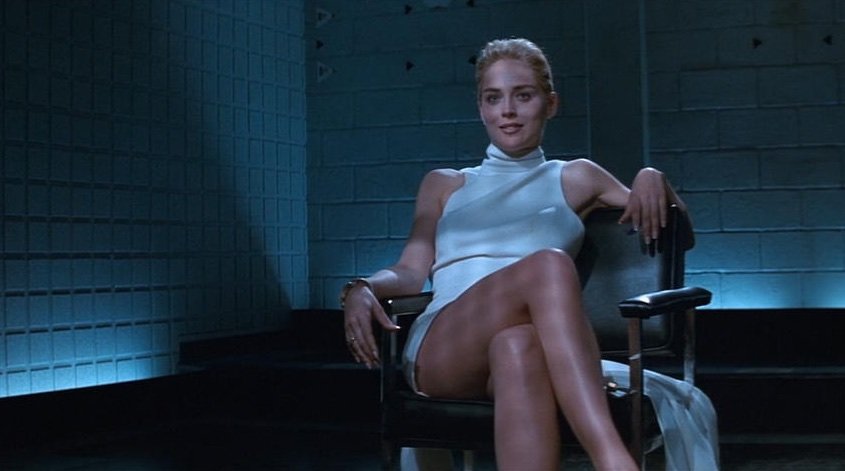
:max_bytes(150000):strip_icc():focal(749x599:751x601)/basic-instinct-e957efdac61a46838adcafecf97a2c74.jpg)

